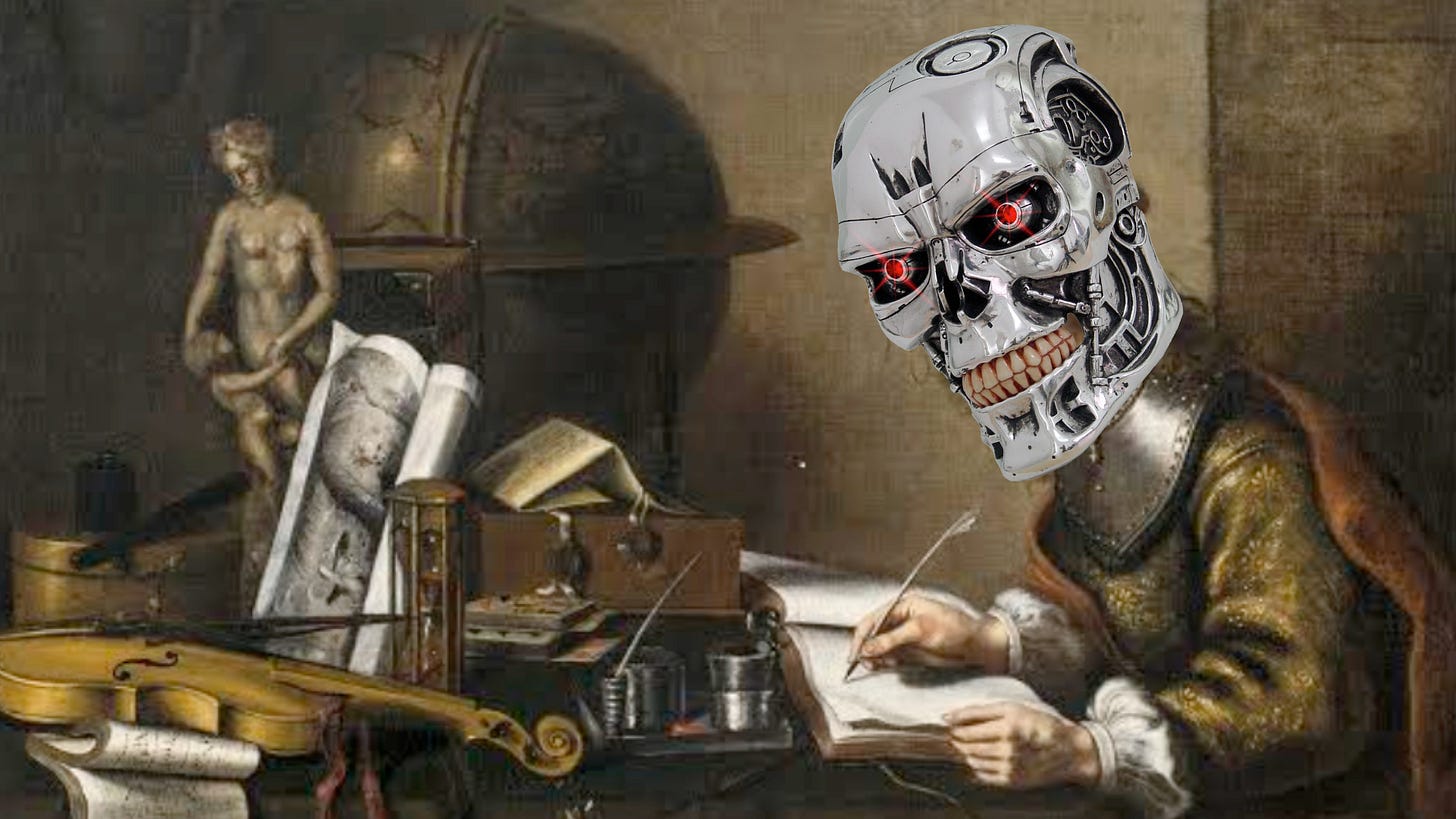Just when you think the depths are all about plumbed out, someone, somehow, digs even further down and unearths one of the worst posts imaginable.
This time, it’s from Sam Altman, the founder and CEO of OpenAI. You know, the company behind ChatGPT. He tweeted that the company “successfully” trained a new AI model to write fiction:

A confession: I’m a bit of a Book Guy. I have an English Literature degree, a novel-focused podcast, and am working on my second book. I read a lot and am in a book club.
Basically, I’m insufferable.
This means I have an innate, visceral and hate-filled reaction to this sort of news, but that storm of emotions isn’t the focus of today. Instead our goal is to answer a simple question: why?
Remoulding that, who is AI-written fiction for?
Fundamentally, the artificial market is a grift. A key component of the tech’s rise is tied to organisations wanting to sell more processing power. Running an AI system is intensive and, if businesses want to use this tech, they have to pay for platforms for them to run.
And can we guess the companies selling this processing power? You got it: the same ones building the AI systems. Google isn’t building Gemini for the good of humankind, it’s to make as much cash as possible.
Still — and as much as it pains me to say it — some AI tools can be pretty useful. Loads of people I know use ChatGPT to compose emails, assist with coding, or provide document outlines. I don’t use it much myself, but I totally get its allure.
Artificial intelligence helping with admin is fine, but creating art? Really? Really?
At its purest, art is about expressing and understanding what it is to be alive, to have a body, to be a person in this wild world.
It’s the truest expression of humanity.
That applies to everything you can call art, from the silliest finger paintings to the high-minded art house oeuvre of Jason Statham’s filmography. And maybe, I dunno, Kafka or Van Gogh or Keats or Van Damme.
The core idea of art is exploring life, what this experience means — so what the holy fuck does AI have to say about all that?
Even ignoring the fact that, to create this fiction-writing model, OpenAI probably just scraped authors’ work without paying them a penny, all the tech can offer is a normie middle ground of what it expects art to be. There’s no experience, there’s no personality, it’s just the closest estimation it can make of that.
I admit there’s interesting work you can do with artificial intelligence, but the worthwhile part of that is when it’s contrasted or shaped or interpreted by a actual person. That’s what gives it meaning, not the AI itself.
This circles us back around to the question: why?
What are OpenAI and similar companies doing when they’re pushing this?
The first and most obvious answer is money. If artificial intelligence is used to create things, and people buy those things, then companies like OpenAI make cold, hard cash. Yet this doesn’t truly explain why they think anyone would pay for this slop.
So here’s my theory on it all: the only success AI-written fiction will have is down to modern society’s focus on hyper-individualism.
And not in a good way.
The redeeming(-ish) quality of AI-written fiction is it can be geared precisely to what someone wants.
Say, for example, a fantasy story where the world is filled with hairy dragons who all have trunks instead of snouts and maraud around trying to catch humans and put them into Pokémon-esque balls so they can fight each other.
An author is unlikely to put much effort into writing this (although, you never know…), so artificial intelligence can scratch this itch. The most useful application of this is eroticism where people can get their kink explored via text, but let’s leave that aside for this argument.
When fiction is written to a specific prompt like the above, it ruins the entire point of novels.
While enjoyment and entertainment are part of the reading process, the element that truly separates prose as an art form is the ability to get deep into someone else’s psyche. You find yourself in an alien yet familiar mind, viewing the world a different way and gaining a new perspective.
We’re in an age where this is becoming less important. Social media and algorithms are designed to offer us exactly what we want, placing us into neatly categorised boxes of our likes and dislikes. Technology rarely offers us something new and scary, that’s not where the money is. Instead, it gets off on delivering the familiar, the comforting, and the known.
That’s what AI-written fiction can do, what OpenAI wants it to do: reflect our own thoughts and experiences back to us.
But that’s not art. That’s not real writing. It’s a facade, a hollow reflection of our self-centred world.
So, to answer my original question, who’s AI-written fiction for? Easy: the worst parts of ourselves.





